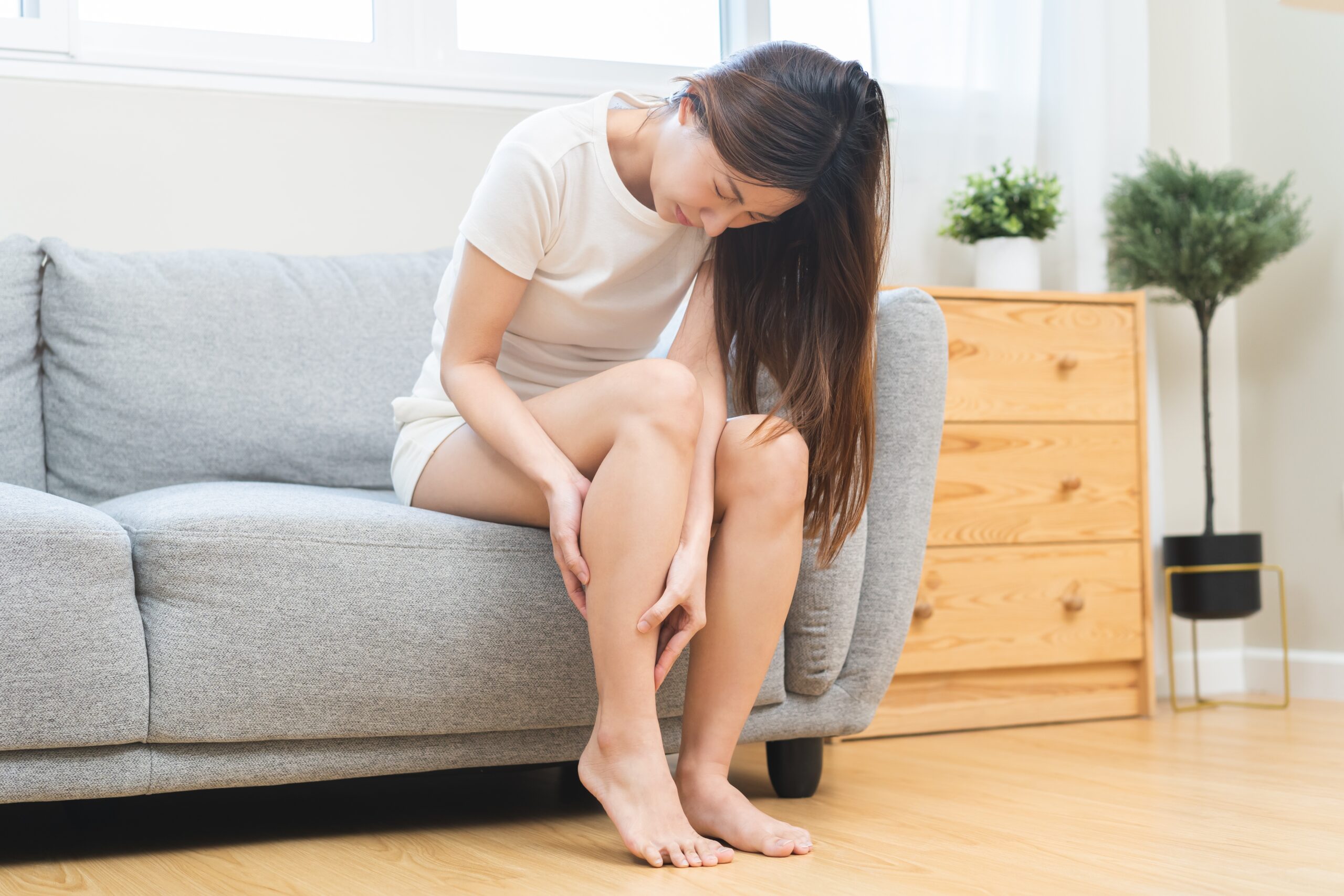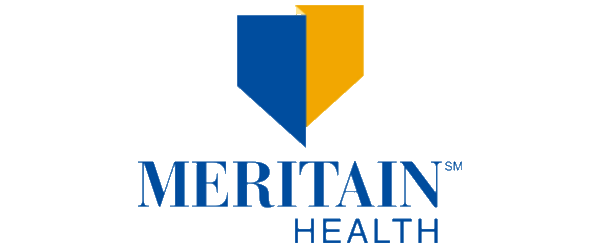Calf cramps hit without warning and leave you confused and in pain, making these sudden muscle contractions an interruption to your day. This can turn simple tasks into challenges.
Understanding the reasons behind them and recognizing the early signs can help you manage the discomfort.
In this article, you’ll learn about common causes and discover straightforward ways to find relief when calf cramps strike.
What Are Calf Cramps?
Calf cramps (also known as charley horse) are the sudden involuntary contractions of the leg muscles, particularly the calf. These cramps result from a muscle spasm where the muscle tightens and fails to relax.
The intensity of a leg cramp can vary, but the pain is usually sharp and immediate, with the affected muscle sometimes feeling hard or knotted. Most episodes last a few seconds to minutes, leaving the area tender for hours.
Several factors contribute to calf cramps, including dehydration, overexertion, and imbalances in electrolytes like potassium and magnesium.
Muscle weakness can also play a role in older adults where reduced muscle mass leads to increased strain during activities, which triggers these cramps.
Symptoms of Calf Cramps
Leg cramps often appear out of nowhere and bring sharp pain to the lower leg. This often involves a cramped muscle that feels tight and inflexible. These painful leg cramps usually last just a few minutes but can leave soreness lingering in the area long after.
The calf is the most common spot, though thigh cramps can also occur, making it tough to move or stretch the leg muscle.
Here are the common signs of painful leg cramps:
- Sharp, sudden pain: The pain can strike unexpectedly, often while resting or sleeping, causing a sudden, jarring wake-up.
- Muscle tightening: The affected muscle feels tight and hard, and the leg may spasm visibly.
- Cramp duration: While cramps typically last between a few seconds to a few minutes, the muscle may remain sore for several hours or even days after the cramp subsides.
- Limited movement: During a cramp, moving the leg can feel difficult or nearly impossible due to muscle contraction.
- Tenderness post-cramp: Once the cramp eases, the muscle might feel tender, and walking or standing may cause mild discomfort.
Sometimes, leg cramps come with other symptoms, such as leg swelling, which suggests something more serious might be happening. When paired with poor blood flow, cramps might point to circulation problems.
If you experience symptoms like chest pain alongside leg cramps, you should seek medical attention, as these could indicate an emergency.
Dehydration, overuse, or lack of proper minerals in your diet can lead to cramps as well, but when other symptoms join in, further investigation might be necessary.
How to Prevent Calf Cramps
Preventing calf cramps is all about taking proactive steps toward managing your health and routine. Here’s how you can keep calf cramps at bay:
Stay Hydrated to Prevent Muscle Cramps
Drinking water consistently throughout the day can be key in preventing leg cramps, particularly those related to dehydration. Muscle cramps often happen when your muscles don’t have enough fluid to function smoothly.
Hydration is especially important if you are prone to nocturnal leg cramps, which can disrupt your sleep. Alcohol and caffeine can dehydrate your body, so limit those drinks to avoid cramping.
Balance Nutrients to Prevent Leg Cramps
Muscle function depends on key nutrients like magnesium, potassium, and calcium. An imbalance of these can increase the chances of night leg cramps. Incorporating foods like bananas, spinach, and dairy can supply these necessary minerals.
If deficiencies persist, magnesium supplements may be helpful for those experiencing muscle cramps frequently.
However, conditions like kidney failure can affect how your body manages these nutrients, so check with your healthcare provider if you have underlying health issues.
Stretch Before Bed to Avoid Leg Cramps at Night
Stretching before bed helps relax tight muscles, reducing the risk of leg cramps at night. Simple stretches like pointing your toes toward your shin can target the muscles prone to cramping.
This routine becomes even more important if you suffer from restless legs syndrome, as gentle stretches can soothe both conditions.
Regular stretching ensures your muscles stay flexible throughout the night and can prevent muscle cramp episodes.
Adjust Your Sleeping Position to Prevent Nocturnal Leg Cramps
Your sleeping position may affect your risk of developing nocturnal leg cramps. If you tend to sleep on your back, elevating your feet or keeping your toes pointed upwards may help with cramping and swollen legs.
For stomach sleepers, allowing your feet to hang off the bed could keep muscles relaxed. Trying different positions may minimize night leg cramps and improve sleep quality.
Engage in Regular Physical Activity
Incorporating light exercise into your daily routine can prevent muscle cramps. Walking, cycling, or mild leg exercises before bed can help ease tension and promote blood circulation, making it less likely for leg cramps to occur during the night.
Avoid overworking your muscles, as overexertion without proper recovery may also trigger muscle cramps.
Use Heat or Cold to Relieve Leg Cramps
When a muscle cramp strikes, applying heat or cold can help alleviate the discomfort. A heating pad or warm bath can increase blood flow and relax the muscles, while an ice pack may reduce inflammation and pain during or after a leg cramp.
Medication and Supplements for Preventing Leg Cramps
For those with recurring night leg cramps, magnesium supplements or prescribed medications like muscle relaxants may offer relief. Individuals with conditions like kidney failure should be particularly cautious with supplements, as their bodies may not process certain minerals effectively.
How Wellness and Pain Can Help Treat Your Calf Cramps
Wellness and Pain offers patients minimally invasive procedures to address the root cause of calf cramps and relieve them of chronic pain. Our expert team of pain specialists will diagnose your condition and recommend the appropriate treatment option to get rid of calf pain for good.
Here are our treatment options for addressing leg cramps:
- Vein ablation: When faulty veins disrupt blood flow, we use vein ablation to fix the issue. This simple procedure closes damaged veins, reduces swelling, and improves circulation in the calf. Patients often return to their routines within days, making it a quick path to long-term relief.
- Massage therapy: Muscle tightness in the calf responds well to targeted massage therapy. Our team applies specific techniques that reduce stiffness and increase blood flow. With regular sessions, you can expect less pain and improved flexibility over time.
- Acupuncture therapy: Calf pain linked to inflammation or poor energy flow can benefit from acupuncture. Our experts use fine needles to stimulate healing points as they improve circulation and relieve pain naturally.
- Chiropractic services: Sometimes, spinal misalignments create stress that radiates into your calf muscles. Our chiropractors make gentle adjustments that restore proper alignment, reducing strain and discomfort in your legs.
- IV hydration: Calf cramps often stem from dehydration. We offer IV hydration treatments that replenish fluids quickly. This can help relieve muscle cramps and prevent future issues.
We focus on creating a treatment plan that meets your specific needs, and we aim to provide relief and restore mobility in your calves. Reach out today to see how we can help.
Treat Your Calf Cramps Today With Wellness and Pain
If you’re struggling with painful calf cramps, Wellness and Pain offers targeted treatments to help you find relief.
Our treatments range from massage therapy to acupuncture and vein ablation. We’ve designed them to target the root cause of your discomfort. Whether your cramps stem from muscle overuse, dehydration, or an underlying condition, we tailor our approach to meet your needs.
Don’t let calf cramps hold you back and give us a call today at (844)-949-2358 and let’s start working together towards long-lasting relief. Contact us in writing for more information about our services.
FAQs About Calf Cramps
How can I prevent calf cramps?
Stretch before exercising, stay hydrated, and eat foods rich in electrolytes to lower the risk of cramps. Wearing supportive shoes and changing positions often helps, too.
What should I do if I get a calf cramp?
Stretch the muscle gently, massage it, and try walking to boost circulation. A warm shower or compress can ease the discomfort.
Are calf cramps a sign of something serious?
Most of the time, calf cramps aren’t a cause for major concern. However, frequent or severe cramps may point to issues like nerve compression, circulation problems, or lack of nutrients. Consult a doctor if cramps persist.
Why do calf cramps occur more at night?
Reduced blood flow, muscle fatigue, or poor sleeping positions often cause cramps at night. Stretching your legs before bedtime might reduce their occurrence.











